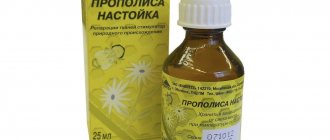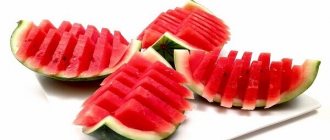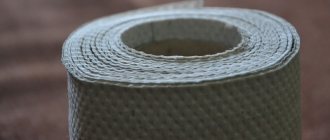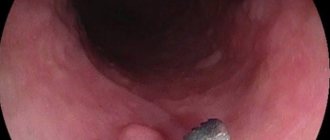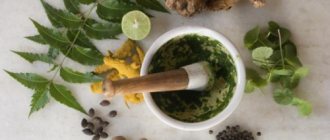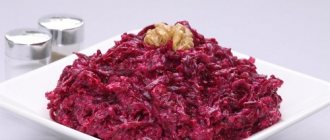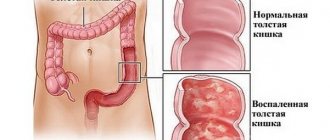Colitis is an inflammatory disease of the colon mucosa. It occurs due to poor nutrition, infectious diseases, and stress. The pathology can occur in a chronic form without causing serious discomfort to the patient. But without treatment, colitis can cause complications, since many nutrients are absorbed in the colon and vitamins and hormones are formed. Therefore, complex therapy should be used to overcome the pathology. Often, in addition to traditional treatment, traditional methods are used to help alleviate the patient’s condition and reduce the amount of medications taken.
Features of colitis treatment
Colitis has recently become a fairly common pathology. This is due to an abundance of stress and a large number of chemical additives in food. People of any age are susceptible to this disease, but most often those who have other pathologies of the digestive system are affected.
One of the most common causes of colon inflammation is infection. In this case, they speak of the development of enterocolitis, because other organs of the digestive tract are also affected. This pathology is acute, severe, with pain, diarrhea, and fever. This requires special treatment, possibly even placing the patient in a hospital.
But most often colitis occurs in a chronic form. It occurs when an infection enters the intestines, food poisoning, after prolonged use of antibiotics, dysbacteriosis, or poor nutrition. In this case, colitis can be ulcerative, spastic, toxic, catarrhal, infectious, erosive, atrophic, superficial, nonspecific. This classification takes into account the causes of occurrence, as well as the characteristics of the course of the disease. It is needed for a more accurate selection of treatment methods.
Indeed, with different forms of colitis, symptoms may vary. The main manifestation of the disease is bowel dysfunction. But the patient may suffer from constipation or diarrhea. They also often alternate. There is a painful urge to defecate, which is not always accompanied by bowel movement. Because of this, cracks and ulcers appear on the walls of the rectum near the anus.
The disease is also accompanied by abdominal pain. They are usually aching and dull, but can be spastic. The patient is constantly accompanied by discomfort. He feels flatulence, bloating, nausea. Therefore, treatment should primarily be aimed at eliminating these symptoms.
Types of colitis
There are various manifestations of this disease. Acute colitis occurs against the background of food or drug poisoning, as well as as a result of the harmful effects of toxic intestinal infections. The chronic form manifests itself as a result of prolonged inflammation, which destroys the mucous membrane of the large intestine and negatively affects its motor and secretory properties.
There are varieties of colitis, depending on the underlying cause and course of the disease. This:
- Infectious
- Nutritional
- Terminal
- Granulomatous
- Autoimmune
- Ischemic
- Microscopic
- Drug
- Ulcerative
- Mechanical
- Radiation
Application of traditional methods
The acute form of the disease is most often treated in a medical facility. But chronic colitis can be treated at home. In addition to the medications prescribed by your doctor, it is very important to follow a special diet to prevent further irritation of the colon mucosa by roughage.
In addition, to alleviate your condition and speed up the recovery process, you can treat intestinal colitis with folk remedies. Their peculiarity is that they are effective only as part of complex therapy.
It is not recommended to use only traditional methods, especially in acute forms of the disease. Be sure to use medications prescribed by your doctor. And traditional methods are auxiliary treatment.
All folk recipes are based on natural ingredients. Therefore, they are safer and less likely to cause side effects. But still, they can only be used with the permission of the attending physician, since improper use of herbs can worsen the patient’s condition. For the same reason, it is necessary to strictly follow the dosage and method of using the folk remedy.
Traditional methods are effective for colitis, but only as part of complex treatment
Another feature of such methods is that they act slowly. Usually the first results are felt after several applications, sometimes even after 2-3 weeks. That is why treatment with traditional methods continues for a long time, and is allowed only as part of complex therapy.
There are many folk recipes for the treatment of colitis. Most often this is the use of medicinal herbs in the form of decoctions or tinctures. Enemas with the addition of oils, rice water or herbs are also effective. It is often recommended to prepare medicines from food. For this, oats, honey, onions, potatoes, apples, and various berries are used. You just need to know which substances help with diarrhea, and which, on the contrary, have a laxative effect.
Classification of colitis
Depending on the cause of occurrence, the following types of colitis are distinguished:
- nutritional – caused by nutritional errors;
- infectious - caused by the action of pathogenic microorganisms on the mucous membrane of the colon;
- medicinal – occurs as a result of uncontrolled use of certain medications (NSAIDs, laxatives, antibiotics and a number of others);
- endogenous toxic – caused by the accumulation of metabolic products in the body (for example, uric acid);
- exogenous toxic – occurs as a result of intoxication of the body with salts of heavy metals and other poisons;
- ulcerative – has an autoimmune origin;
- mechanical - occurs as a result of chronic constipation, abuse of enemas and rectal suppositories;
- ischemic – occurs due to impaired blood supply to the large intestine;
- allergic.
Along the way, colitis can be:
- sharp;
- chronic.
Depending on the location of the source of inflammation, the following types of colitis are distinguished:
- pancolitis – inflammation of the entire colon;
- proctitis – inflammation of the rectum;
- typhlitis - inflammation of the cecum;
- sigmoiditis - the inflammatory process is localized in the sigmoid colon;
- transversitis (inflammation of the colon);
Medicinal herbs
Treatment of intestinal colitis with folk remedies is not complete without medicinal herbs. Even doctors recommend their use in addition to the main treatment. Moreover, herbs are used in the form of decoctions, tinctures, and microenemas. Some are juiced or dried and ground into powder. But all herbs have different effects and may have contraindications and side effects. Therefore, before using any prescription, you should consult your doctor.
Decoctions from one herb or collection are recommended to be used for 3-6 months, strictly observing the dosage. You need to choose plants for preparing medicine depending on the type of colitis and the symptoms shown.
Typically, in the chronic form of pathology, the following recipes help:
Diet for intestinal colitis, sample menu
- Pour 4 teaspoons of berries and raspberry leaves with 2 cups of boiling water;
- take a teaspoon each of centaury, sage, chamomile, pour a glass of boiling water;
- drink a decoction of mint leaves 15 minutes before meals;
- pour boiling water over a mixture of equal parts of wormwood and sage, leave for half an hour, take a tablespoon every 2 hours;
- decoctions of burdock, caraway or fennel seeds are effective;
- You can also brew willow or alder bark;
- Brew a mixture of shepherd's purse, knotweed, oregano, motherwort, yarrow and St. John's wort in a thermos overnight;
- take vodka tinctures of St. John's wort, Japanese sophora, alder cones or poplar buds.
Some herbs are so effective for colitis that they are brewed and taken separately. The most popular are chamomile, mint, and calendula. These are safe plants that have anti-inflammatory, antispasmodic and calming effects.
If the disease leads to the appearance of diarrhea, it is necessary to choose herbs with a fixing effect. Such drugs cannot be used for a long time, so as not to disrupt intestinal motility; they usually help after a couple of days of use. The most commonly used recipes are:
- brew a mixture of knotweed and cinquefoil roots;
- make a decoction of blueberries and bird cherry fruits;
- A collection of cinquefoil rhizomes, sage and immortelle flowers, blueberry and caraway fruits helps well with diarrhea;
- boil dry pomegranate peels over low heat;
- an infusion of oak bark is effective;
- A decoction of horse sorrel has an astringent effect.
The most common and effective method of treating colitis is the use of medicinal herbs.
And for colitis accompanied by constipation, medicinal herbs with a laxative effect are used. It is not recommended to drink such drugs for a long time, as they irritate the intestinal mucosa.
But taking such decoctions for several days will help get rid of constipation:
- a collection of buckthorn bark, fennel seeds, licorice root and anise;
- a decoction of elderberry flowers and joster fruits;
- a collection of nettles, buckthorn bark and sweet clover is often used;
- if constipation is accompanied by flatulence, a collection of mint, dill seeds and valerian root will help;
- an infusion of yarrow, buckthorn bark, trifoliate and caraway fruits is effective;
- An infusion of strawberry or raspberry leaves improves intestinal motility well.
St. John's wort for colitis
St. John's wort is often prescribed for colitis.
This is due to the fact that this plant has anti-inflammatory properties and can restore damaged tissue in the shortest possible time. In addition, this herb helps in the fight against pathogenic bacteria that inhabit the intestines during colitis, thereby destroying the normal state of the microflora. St. John's wort helps relieve symptoms such as digestive problems, nausea and vomiting. From the plant it is possible to prepare a wide variety of medicinal infusions. So, it is recommended to drink tea for colitis. To do this, you will need 2 teaspoons of herbs, pour 250 ml of cold water and heat until boiling. Straining occurs using a fine strainer. Drink 500–750 ml daily for several weeks.
The medicinal herbal infusion is no less effective. To prepare, you will need to pour 2 teaspoons into 250 ml of boiling water and leave for half an hour, and then strain. Take 1 tablespoon several times a day before sitting down at the table.
Aloe has long been considered to be a pronounced laxative, showing its effect after 8-10 hours, as was customary. In addition, consuming the plant for colitis helps improve appetite and normalize digestion. It is equally important that it has anti-inflammatory effects on the intestinal walls, which is a very important aspect in medical procedures. Aloe is a natural biostimulant, which means it can improve immunity, while outperforming expensive medications.
In folk medicine, it is proposed to use aloe for colitis in this way: take 5-6 succulent leaves of the plant, scroll through a meat grinder or pass through a juicer. The resulting juice can be stored in the refrigerator for no more than a few days. The intake should be 1 teaspoon 3 times a day half an hour before sitting down to eat.
Calendula can have an anti-inflammatory effect on the intestinal walls. In addition, it has the ability to accelerate the recovery processes of diseased cells during colitis, and under the influence of the plant, the formation of a healthy cellular intestinal layer begins faster. Due to the fact that this herb has a choleretic effect, the processes of digestion of food during colitis are improved. Calendula will also help with pain symptoms in the abdominal area, as well as relieve nausea, vomiting and constipation.
It is recommended to use calendula tincture for colitis. To do this, take 1 tablespoon of flowers and add 250 ml of alcohol or 500 ml of vodka. Infuses for 7 days. The result should be a transparent liquid with a yellowish color. Take 15-20 drops at a time.
The use of oil from the plant is also allowed. To do this, the grass flowers are placed in a glass bottle, sealed and exposed to the sun. After a certain amount of time, oil will appear that can be used for therapeutic manipulations.
To prevent the effects of stomach acid on the intestinal walls, you can use various decoctions and tinctures of sage. It is worth noting that this plant is most effective for colitis, especially if you add chamomile and centaury to it.
To prepare the medicine, you will need to pour 1 tablespoon of sage into 250 ml of boiling water and let it brew for about 2 hours. After this, you are allowed to consume 1 tablespoon of the decoction every 2 hours. While a person is awake, it turns out about 7-8 times. The course of taking the herbal mixture is carried out in this rhythm for about 1-3 months, after which the dosage is reduced and the time intervals are lengthened.
It is worth noting that such a decoction of sage for colitis is absolutely harmless, and therefore there are no obstacles to treating it for a long time.
Chicory has long been used in folk medicine. This is due to its unique properties: excellent effect on the gastrointestinal tract, due to which it is actively used for colitis. Due to the content of bitter substances, it provides the opportunity to stimulate appetite.
A decoction of the herb has diuretic and choleretic properties, and can also calm the nervous system and help with constipation. To prepare a decoction of chicory roots for colitis, take 1 dessert spoon of dried and crushed roots per 400 ml of boiling water. Cook the broth over low heat for about 8 minutes. Remove from heat and strain after 15 minutes. Take 1/2 cup 4 times a day. To prepare a decoction of chicory herb, all the same manipulations are done, only 400 ml of boiling water is taken and 2 dessert spoons are taken.
1 tbsp. l. dissolve honey in a glass of cold boiled water and drink before meals for colitis (disease of the large intestine). Take 3 glasses of honey solution a day. The course of treatment is 1.5-2 months.
Under the influence of honey, the intestines are cleansed of pathogenic microflora. At the same time, honey stimulates the development of non-pathogenic microflora (symbiont bacteria) involved in the digestion of food and the production of vitamins, hormones and other biologically active compounds that the body needs.
Take 1 tsp. bee bread, dilute in 50 ml of boiled water, let stand for 2-3 hours and drink. Take 3 of these doses throughout the day. The course of treatment for colitis is 1-1.5 months. During the year it can be repeated 3-4 times.
Dissolve 80-100 g of honey in 1 liter of apple juice or boiled water at room temperature and drink 1 glass 3-4 times a day for 1-1.5 months for chronic enterocolitis. Conduct 3-4 such courses throughout the year.
Take 3 tbsp. l. dry crushed chamomile flowers, pour 750 ml of boiling water into a thermos, leave for 1-2 hours, strain, dissolve 70-80 g of honey and drink in 3-4 doses during the day. The course of treatment for colitis is 1.5 months. After a two-week break it can be repeated.
Pour dry crushed St. John's wort herb with 40% alcohol (vodka) in a ratio of 1:5, leave in a dark place for 10-12 days, strain and drink 40-50 drops with a small amount of water 3 times a day for enteritis, colitis and other gastrointestinal diseases -intestinal tract, as well as for gallstone disease, cystitis, rheumatism, hemorrhoids, etc.
Enemas
Traditional treatment for colitis often includes enemas. They effectively heal the mucous membrane and eliminate constipation. For the procedure, you can take different compositions, these can be medicinal herbs or oils. Microenemas of 50 ml are usually used, since a large amount of fluid in the intestines can lead to a worsening of the condition. They are done at night, the composition is injected into the rectum while lying on the left side.
Enemas with sea buckthorn oil or sugar syrup heal ulcers well and cleanse the intestines of mucus and fecal stagnation. For acute colitis, a solution of potato or corn starch, rice broth, chamomile infusion with honey or propolis tincture is used. Enemas with the following herbs are also effective: oregano, St. John's wort, calendula, chamomile, celandine, violet, sage, string.
Causes of colitis
The exact causes of colitis have not been clarified to date . There are many theories on this matter, but not one of them has yet received 100% confirmation. But it is known for sure that there are a number of factors that can trigger the development of the disease.
These include:
- infectious diseases of the body (tuberculosis, salmonellosis, dysentery, cholera and a number of others);
- food poisoning;
- unhealthy diet – abuse of fast food, spicy, fried, fatty smoked foods, alcohol, lack of fermented milk products and foods rich in fiber in the diet;
- genetic mutations - can lead to congenital intestinal disorders;
- concomitant diseases (gastritis, pancreatitis, hepatitis, cholecystitis and a number of others);
- weakening of the body's immune defense;
- uncontrolled use of certain medications;
- toxic poisoning (exogenous and endogenous);
- allergy;
- frequent mechanical impact on the intestines.
Nutrition
For intestinal colitis, the patient is prescribed a special diet. It is necessary to exclude fruit juices, carbonated drinks, pork, and fresh bread from the diet. Fried and spicy foods, fresh vegetables, salads, animal fats, and bran are not consumed. All food must be steamed or boiled. Vegetable soups, baked fruits, white poultry meat, day-old bread or crackers are allowed. Oatmeal, stewed pumpkin, baked apples, dried fruit compotes are healthy.
Some foods can be used as medicines. For example, in the summer a course of treatment is carried out with watermelon peels or seeds. They are brewed in a thermos and taken half a glass of the decoction before eating. Decoctions and infusions of various berries are also useful: viburnum, blueberries, bird cherry.
A honey solution has a healing and anti-inflammatory effect. It is also often recommended to drink various juices. Chronic colitis is well treated with a mixture of spinach, carrot, beet and cucumber juices. And at the initial stage of colitis, onion or potato juice is effective.
Instead of black tea and coffee, it is recommended to drink green tea. It will help get rid of nausea and heartburn. Chicory infusion is also effective. If you brew it with milk, the drink will resemble coffee, but will have a healing effect on the intestines.
Many people know the beneficial effects of seaweed. It is not recommended to take it fresh for intestinal inflammation, but dried and crushed it treats ulcerative colitis well. An effective medicine in powder form can also be prepared from dried fruits. Dried apricots, prunes and figs are dried and crushed. Aloe juice is added to the resulting powder, and balls are formed from this mass. They must be taken for a month before meals.
Some foods for colitis are medicinal
Diagnosis of colitis
The main methods for diagnosing the disease are:
- Taking anamnesis, interviewing and examining the patient.
- Laboratory research methods:
- blood test (general) - detects signs of an inflammatory reaction in the body (increased white blood cell count, high ESR);
- stool analysis (coprogram) - detects blood impurities, leukocytes, red blood cells;
- PCR diagnostics – detect viral and parasitic intestinal diseases;
- stool culture - identifies pathogenic microorganisms or confirms their absence.
- Instrumental research methods:
- Ultrasound of the intestines;
- MRI;
- irrigoscopy - X-ray examination of the intestine using a contrast agent;
- colonoscopy is an examination of the large intestine using a special device, an endoscope, with which the exact location of the lesion is determined and a piece of intestinal tissue is taken for histological examination to detect atypical cells.
Prevention of colitis
The main measures to prevent the disease are:
- proper nutrition - avoidance of junk food, balanced diet, small meals (5-6 times a day, in small portions), exclusion of foods that cause increased gas formation;
- rejection of bad habits;
- timely treatment of concomitant gastrointestinal diseases;
- use of personal protective equipment when working in hazardous industries;
- regular sanitation of foci of chronic infection in the body;
- periodic intake of multivitamin complexes, especially during the off-season (autumn and spring), when the body is most weakened;
- hardening, strengthening the body's immune defense;
- avoiding stress;
- normalization of work and rest regimes;
- refusal of uncontrolled use of medications;
- giving up a sedentary lifestyle - physical exercise, regular walks in the fresh air;
- Regular (at least once a year) preventive examination will help identify colitis at an early stage, which will significantly facilitate subsequent treatment and improve the prognosis.
Features of pathology and types
Colitis is an inflammatory process in the large intestine, combining a whole group of diseases: sigmoiditis (inflammation of the sigmoid colon), enterocolitis (inflammation of the small intestine), typhlitis, proctitis, paraproctitis, segmental colitis and others. The causes of exacerbation of chronic colitis can be multiple factors, including traumatic damage to the mucous membranes, long-term use of medications, and intestinal dysbiosis.
The main symptoms of the pathology are considered to be atypical discharge from the anus (blood, mucus, purulent exudate), painful bowel movements, nagging pain in the lower abdomen, abnormal stool, malaise, increased body temperature, and decreased appetite.
Note! Almost all diseases of the digestive system have similar symptoms, so differential diagnosis should be carried out to identify the nature of colitis. The following forms of colitis are distinguished.
Acute or subacute
The main reasons are an allergic reaction, infection, aggressive food, inflammation of other abdominal organs. Symptoms are always vivid, differ in intensity and duration. To reduce unpleasant symptoms, you can use the following recipe:
- 3-4 tbsp. spoons of raspberry leaves (can be fresh) and wormwood are poured into 0.5 liters of water and brought to a boil over low heat for 15 minutes. After the broth is cooled and filtered, drink 100 ml during the day 4-5 times.
- Another recipe for colitis is prepared based on Ivan tea. 2 tbsp. spoons of dry plants are poured into 1 liter of boiling water and left for 3 hours. Afterwards, the broth is filtered and drunk to improve the health of the stomach and intestines.
The duration of the exacerbation phase is 4-5 days. In the absence of adequate therapy, acute colitis quickly becomes chronic, accompanied by a constant alternation of remission and exacerbation.
Ulcerative or ulcerative nonspecific
The disease is caused by hereditary predisposition, poor nutrition, constant stress factors, and an infectious process. The main symptom of ulcerative nonspecific colitis is considered to be ulceration of the intestinal mucous membranes, purulent discharge from the anus, and painful syndrome. To relieve the unpleasant symptoms of ulcerative colitis and reduce irritation of the mucous membranes, prepare the following recipe:
- St. John's wort and chamomile are combined in a glass container, 2 tbsp. spoons of the mixture are poured into a saucepan and pour 0.5 liters of boiling water. Afterwards, the broth is boiled for 15 minutes, infused, filtered and drunk 3 times during the day. To improve the taste of the intestinal collection, you can add 1 teaspoon of honey to the warm broth. St. John's wort is very helpful for superficial colitis. Chamomile for intestinal colitis envelops the mucous membranes and stops the inflammatory process.
- Potato juice. Spasms and pain due to ulcerative lesions of the mucous membranes can be eliminated with juice from fresh potatoes. 3-4 tubers are grated on a fine grater, squeezed, and the resulting juice is drunk in the morning on an empty stomach and at night. Potatoes will help get rid of diarrhea.
With ulcerative colitis, mandatory treatment is required, as there is a risk of complications: perforation of the mucous membranes, perforation of the ulcer, acute peritonitis. Other recipes are also effective:
- flaxseed for intestinal colitis;
- linseed oil.
Before using flax products, it is important to be aware of possible side effects. If the dosage is not observed when treating with flaxseed oil, diarrhea is likely to develop.
Important! In case of ulcerative colitis, treatment with propolis in alcohol is unacceptable due to the risk of damage to the mucous membrane. It is better to use a water-based solution.
Atrophic
Atrophic changes in the intestinal mucosa are caused by long-term drug treatment, hereditary predisposition, and heavy metal poisoning. Atrophy of the intestinal mucosa often causes the formation of polyps, tumors, and cancer. The disease can cause erosive or erosive ulcerative colitis.
To treat atrophic colitis, it is important to reduce trauma to the mucous membranes, create a protective barrier, and normalize stool. Effective remedies are oils (olive, vegetable, flaxseed oil on an empty stomach for a month), decoctions of rowan berries, rose hips, douching with medicinal herbs, and antiseptic solutions. Ivan tea is useful for the stomach with any acidity, with a burdened gastroenterological history in general.
Chronic
The main reason for the chronicity of the pathological process is the lack of normal therapy or relief of unpleasant symptoms without treating the underlying cause of colitis. The development of the chronic form of colitis is facilitated by dysbiosis, disruption of intestinal microflora, infectious processes, and weakened immunity.
Article on the topic: 5 symptoms by which you can recognize an exacerbation of chronic cholecystitis
At home, you can prepare a decoction based on St. John's wort, fennel, immortelle, yarrow, senna, chamomile and peppermint. These plants are suitable for low stomach acidity. All components are mixed in equal proportions. 2 tbsp. A spoonful of the resulting mixture is poured into 1 liter of boiling water and boiled for 15 minutes over low heat. The finished broth is cooled, filtered, and then drunk 3-4 times a day warm.
Pseudomembranous
Pseudomembranous colitis is caused by the activity of the pathogenic bacterium Clostridium difficile and long-term use of antibiotics. The symptom is difficulty defecating, copious discharge of mucus from the rectal canal, and the formation of a whitish coating on the walls of the intestinal tract (according to the results of an endoscopic examination).
For pseudomembranous colitis, it is useful to eat fiber, fermented milk products, dietary supplements and prebiotics to restore intestinal microflora. To remove plaque, flaxseed oil and pumpkin seeds, a decoction of rose hips, and thick berry jelly will help.
Spastic
Spastic colitis is caused by a violation of muscle contractility in the mucous and submucosal layer, and non-compliance with the normal diet. Spastic colitis often develops against the background of chronic irritable bowel syndrome. More common in women and children. To improve the general condition of the patient, the following recipe is suitable:
- 2 tbsp. spoons of fennel fruits and 1 teaspoon of dill seeds are poured into 0.5 liters of boiling water and simmered over low heat for half an hour. Next, the composition is cooled, filtered and drunk in small portions throughout the day. The total duration of the course is 3 months.
In case of a severe attack of spastic colitis, antispasmodics and prebiotics are usually prescribed to normalize general digestive function. An infusion of walnut shells for colitis is considered effective, but you should not eat walnuts for ulcerative colitis due to the risk of traumatizing the mucous membranes.
Catarrhal
Catarrhal colitis is the initial stage of inflammation in any segment of the intestinal tract. The main causes of pathology are acute and chronic intoxication, poisoning, vitamin deficiency, and decreased general and local immunity. To relieve unpleasant symptoms and various dyspeptic disorders, the following recipe is effective:
- Caraway seeds (2 tablespoons) are poured with boiling water and left for 40 minutes. Afterwards, the composition is filtered and drunk in small portions throughout the day. Cumin goes well with fennel and dill seed.
Cumin helps with flatulence, bloating, and stimulates the mucous epithelium to regenerate against the background of various injuries.
Treatment with bee products
Propolis and honey are strong natural antibacterial substances that can eliminate a large number of pathological microorganisms, which often lead to the appearance of such a disease. In addition, they have a pronounced wound-healing and anti-inflammatory effect.
Treatment with beekeeping products has only one contraindication - individual intolerance; in other cases there are no restrictions on the use of such ingredients. Also, therapy with propolis and honey has a number of additional properties:
- positive effect on intestinal motility, which helps fight constipation;
- increasing the resistance of the immune system;
- improvement of the patient's condition - this is primarily achieved due to the strong anesthetic effect.
Treatment of colitis with propolis is carried out both in its pure form and as tinctures and microenemas with the ingredient.

